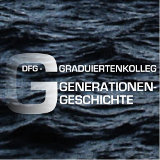Abstract Ralph Winter
french version / german version
This project compares two literary groups of the interwar years, i.e. the "Jüngstes Deutschland" (Erich Ebermayer, Willi R. Fehse, Wolfgang Hellmert, Klaus Mann, Peter de Mendelssohn, Herbert Schlüter, Wilhelm E. Süskind) and the French "Inquietude" (Marcel Arland, André & François Berge, Maurice Betz, René Crevel, Daniel-Rops). Born between 1898 and 1908, their common adolescent experience of war, post-war-disorder and inflation had a formative influence on these authors. Both groups will be described as elites within generation units (Karl Mannheim), reacting in a specific, active way to this experience and describing themselves as authors without a direction, as confused and "inquiéts". By analysing their publications (such as the periodicals "Die jüngste Dichtung" or "Les cahiers du mois") I would like to prove a frequent use of generational semantics and a performance of generational identity. On the one hand this seems to be a strategy to distinguish from other contemporary literary groups and to establish a position in the literary field. On the other hand this allows a reinterpretation of individual experience within the group. Ideas and literary themes that both groups have in common will be analysed and compared according to their similar generational experience.

